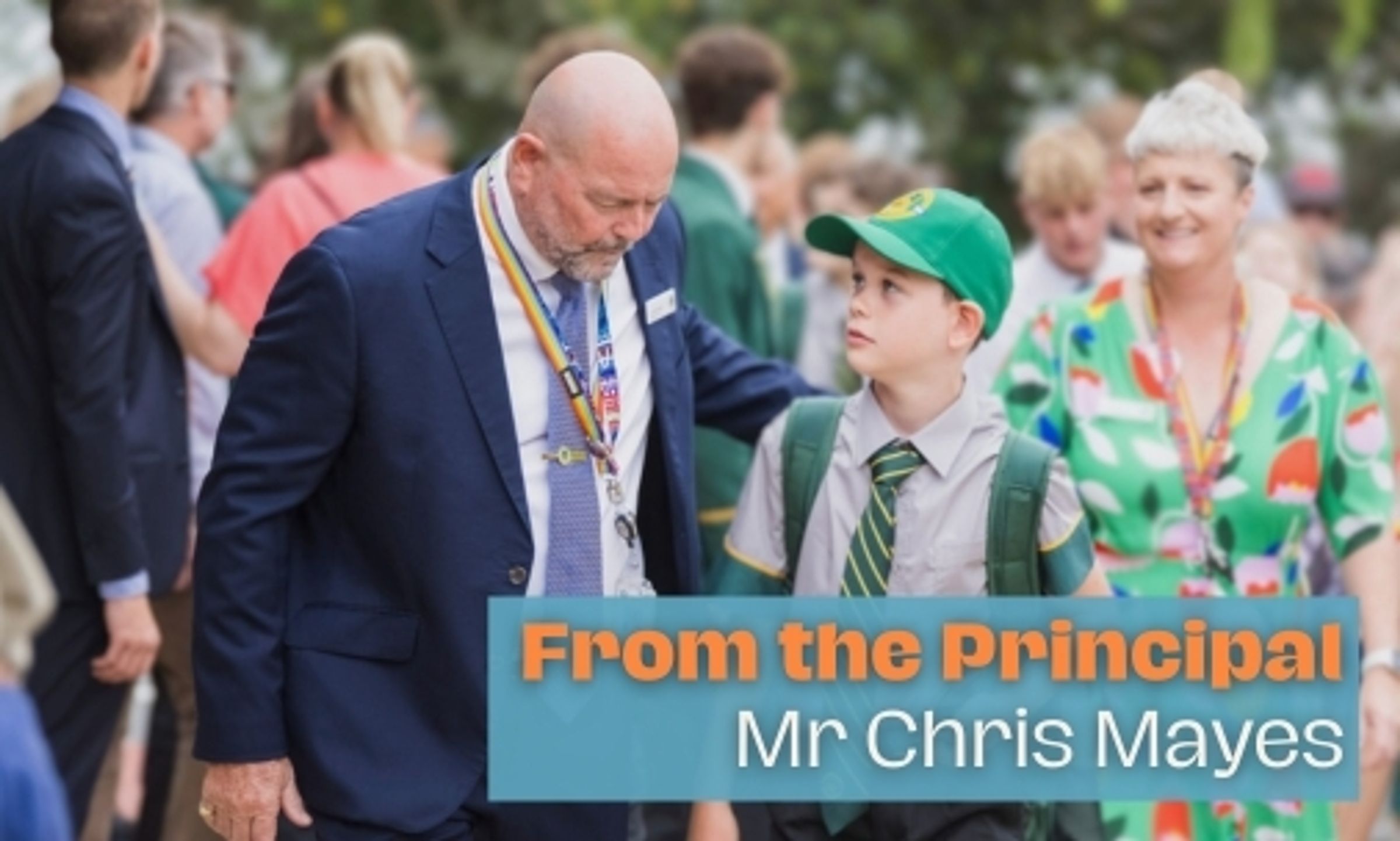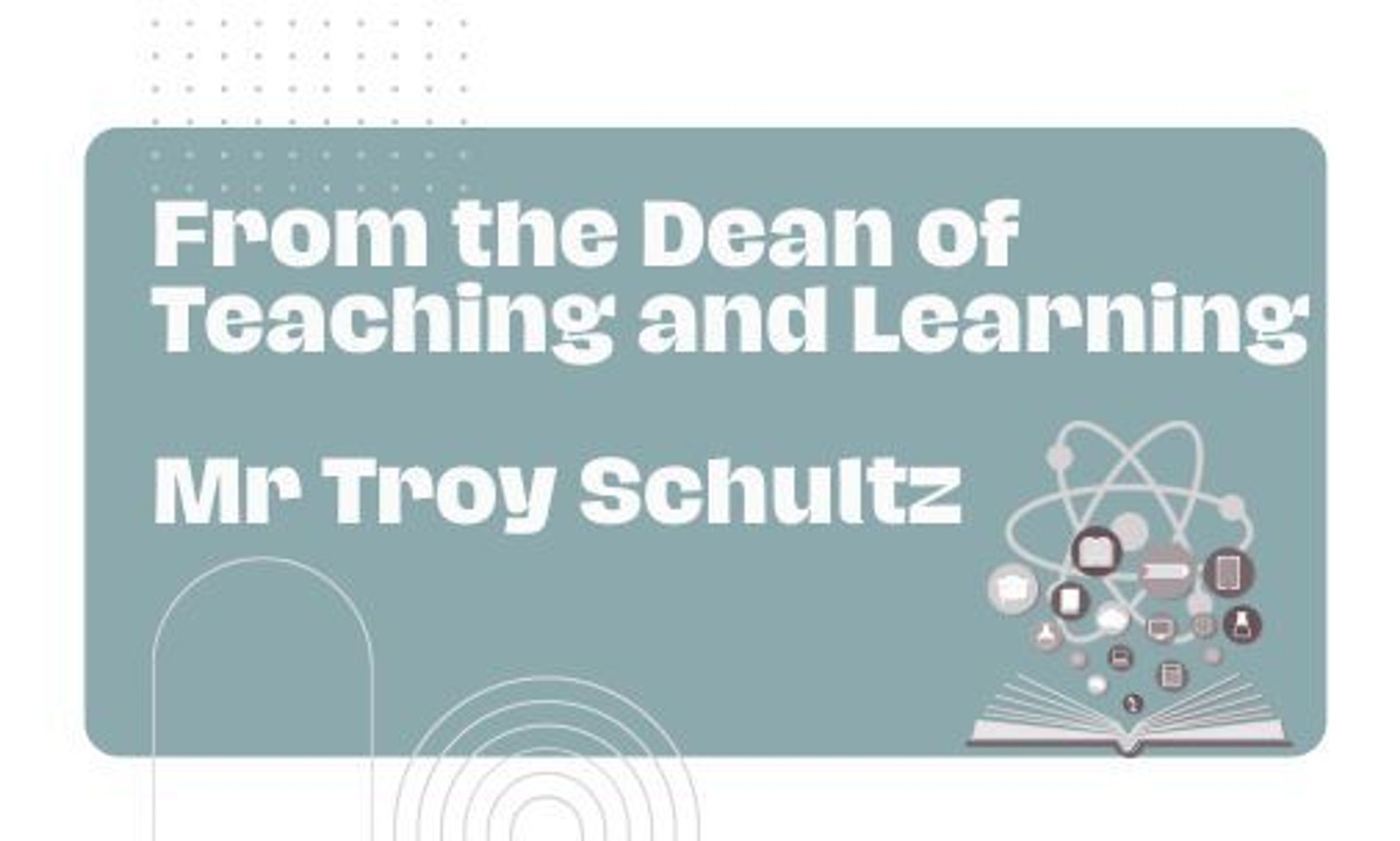This Week
From the Principal: Term 2 - Week 3

Today, we celebrated the life of Blessed Edmund Rice, founder of the Christian Brothers who also founded Edmund Rice Education Australia (EREA). At the core of what we do as an EREA school is offer a liberating education. A liberating education aspires to develop a culture of encounter, integration and of building bridges. If Edmund were alive today, I believe that he would say the following to our young people…
You are privileged to have the opportunity of an education; so, use it to always do your best. Aim high but know that the results you receive at the end of the year do not define or limit you. Your true calling in life is too sacred to be determined by exam results alone.
Be of good character; strong in your convictions, based on the very best wisdom of the ages. Know that you need not be perfect but commit to authenticity. Learn from your mistakes and grow through your failures. Not perfect but authentic; consistent with your inner moral compass
Understand that a truly meaningful life is made up of a series of daily acts of decency and kindness, which, ironically, add up to something truly great over the course of a lifetime.
Be resilient and never give up on the truly important things. It can be a murky world if one is subjected to incessant, unfiltered media and is focused on keeping up with others. In a world awash with constant chatter and endless facts of dubious and fake importance, strive to identify what is of lasting importance.
Discover presence and stillness in your life. Take the time to know silence and rest.
Accept our Gospel’s claims about the way in which human beings should engage in our world, about justice, about the way in which we are expected to relate to one another and about the dignity of every human life. Know that in the end, it is not what we have done in our lives that is of ultimate importance. Rather, it is whether anything we did was worth doing. Has it made a positive difference in the lives of others? Has it contributed to the stock of the world’s good?
Last week the whole country took time to reflect upon the gallantry and service given to all of us by our service women and men. Ultimately, as proven in war, that service can cost them their lives. ANZAC Day is also a time to remind ourselves of the culture or spirit that was forged in the first World War and its impact on our Australian psyche since. This is demonstrated by what we call the ANZAC spirit, and this is etched on the pillars that stand above the end of the Kokoda track in New Guinea. In contemporary terms they can be described as…
Courage is about facing fear and adversity to have the audacity to stand firm when uncertainty looms, to confront challenges head-on, and to uphold principles despite overwhelming odds. Courage manifests in many forms – from speaking out against injustice, standing against wrongdoing to hold high standards for self and others to pursuing our dreams despite doubt.
Sacrifice teaches us the profound power of selflessness. It is about putting the needs of others above our own, even at great personal cost. The spirit of sacrifice reminds us of the importance of empathy and compassion. Whether sacrificing time, resources, or comfort, we honour the greater good.
Mateship binds us together. But true mateship binds us together for the right reasons. It is the camaraderie that transcends differences, uniting individuals in a common purpose. Mateship reminds us of the importance of connection and solidarity. It reminds us that we are stronger together irrespective of our differences.
And finally, endurance or more fittingly what we call resilience today. The ability to endure and persevere in the face of unimaginable hardship. It is the unwavering determination to weather storms, to rise after every fall, and to find strength in adversity. Simply to keep getting up when we think we are down, and everything is too hard.
I am not in any way suggesting a connection or comparison between these two important celebrations but do find comfort in the consistency of the messages. It is also a timely reminder to our young people about what can happen if leaders across our globe cannot commit to the simple concepts of collaboration, resilience, and respect. I am sure that we all hope that the generations ahead will use these messages to make the world a better place for them and others to follow. There is little glamour in war or intolerance, but so many more lessons can be learned from forgiveness and love.
I look forward to meeting up with many of you in the cocurricular events across the coming weeks and the big Mother’s Day celebration.
Live Jesus in our Hearts!
Chris Mayes
College Principal
Curriculum
From the Dean of Teaching and Learning

Optimising Academic Performance
At this week's assembly I thanked students for the warm welcome that they had given me after my rewarding time off in term one. It was nice to feel that students had noticed I wasn't at the college, many even asked me how my leave was and it is these small interactions that make this community such a wonderful place to be.
During these assemblies I like to take the time to support, challenge, and empower students to understand more about what good learning practice looks like. This year I'm introducing an evolved model of what it looks like for a young person to strive towards being the best version of themselves that they can be - both in and outside of the classroom. Through this model I am hoping students will feel more confident about themselves and ultimately improve their academic before performance.
I reminded students of the Men of Learning toolkit that I often refer to when I am speaking at college assemblies. Specifically, I reminded them of some of the ideas:
- Mr Schultz’s golden rule - as a guide students on average should be completing the year levels worth of quality practice for their learning outside of the classroom per week. For example, a year eight student should complete approximately 8 hours of homework each week.
- I reminded them of the forgetting curve - how their memory tends to forget what they've learned with time. To address the forgetting curve, students should employ spaced practice which is the regular and ongoing review and repetition of what they have learnt in their classes.
- Academic notebooks - well-kept, organised and with annotations and thought bubbles are an effective tool to organise learning within each of their subjects.
- Avoiding distractions by purposefully placing their mobile phone in the farthermost room away from their home study space.
I then went on to introduce an evolved idea which I hope will help students conceptualise how to do the best that they possibly can. The idea that academic performance comes from:
- Being a man of learning who has effective approaches to study.
- An accurate understanding of assessment including how assessment criteria judges their work.
- The development of subject specific knowledge and skill sitting
All sitting on top of a foundation of what is required to perform at a high level as a human, each and every day both in and outside of the classroom.

To discuss the human side of things I introduced a mini lesson that focused on two elements: sleep and light.
I outlined with students what science tells us about the recommended sleep for their age and outlined what benefits we get from good sleep: memory consolidation, immune system optimization, reduction of stress and hormone regulation.

We also discussed the importance of regulating our exposure to light. I encouraged them to safely get outside for 20 minutes after sunrise, for 20 minutes before sunset and then ensure that they minimise or avoid totally avoid artificial light in the 30 minutes before they go to sleep.
I am hopeful that over the year, students will pick up at least some of the ideas and be motivated towards being the best that they can be, in and outside of the classroom!
